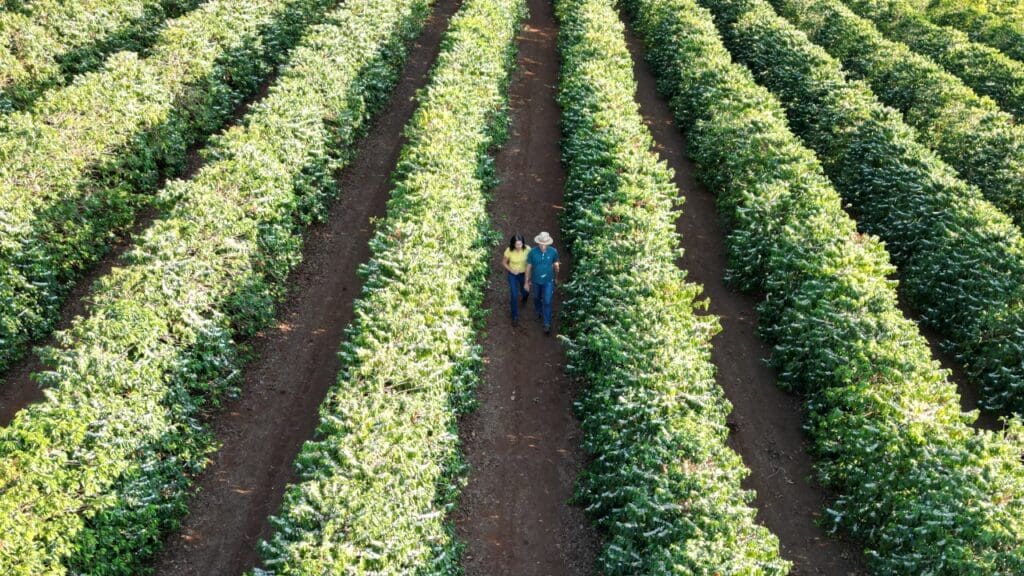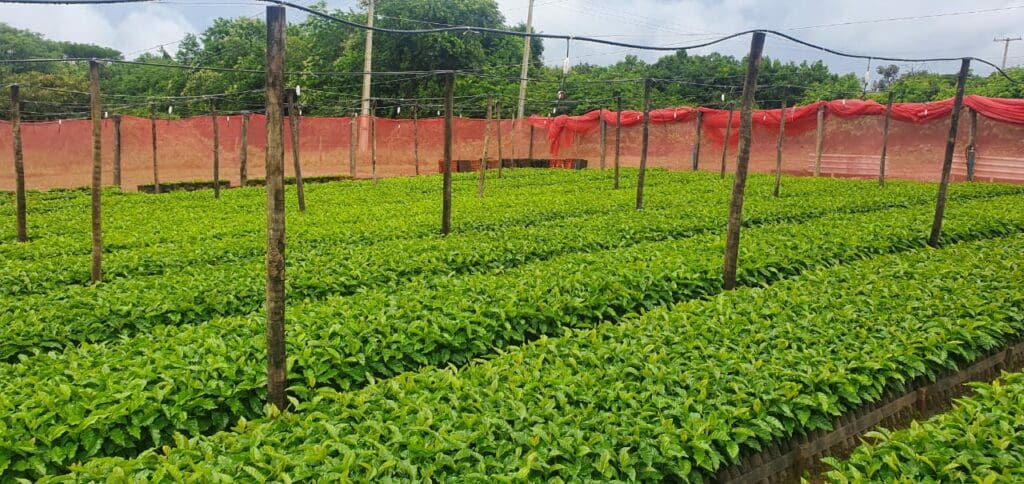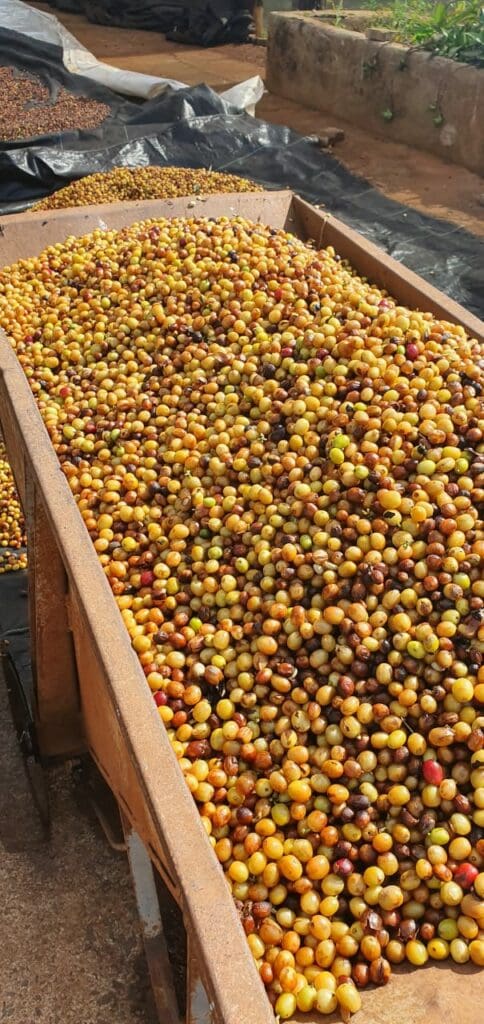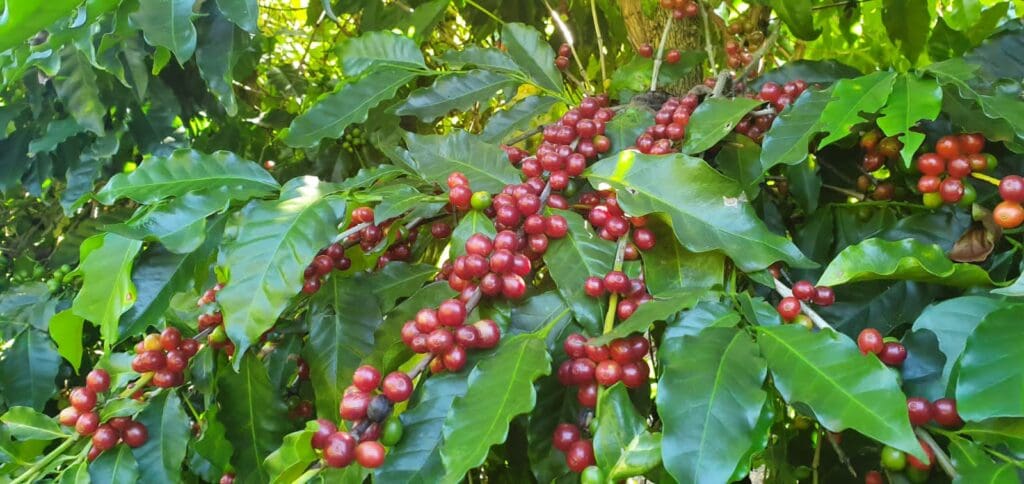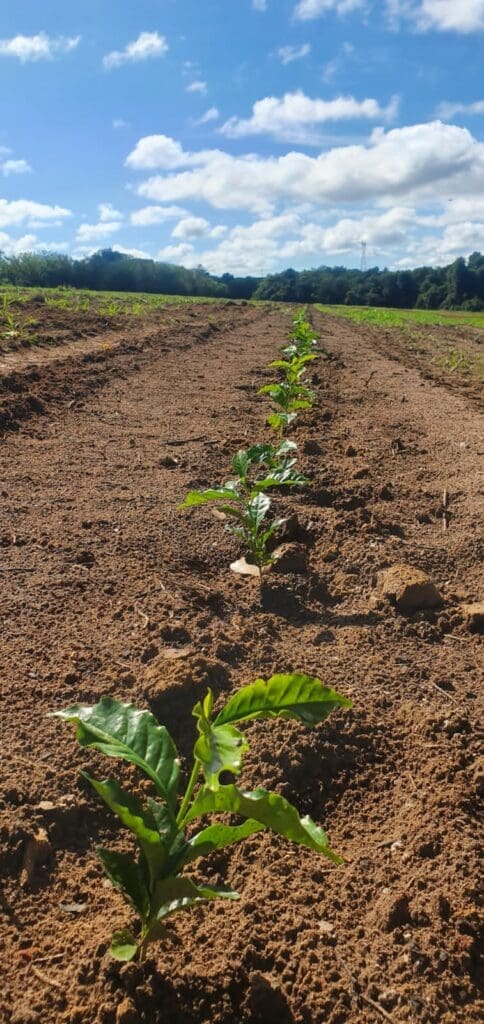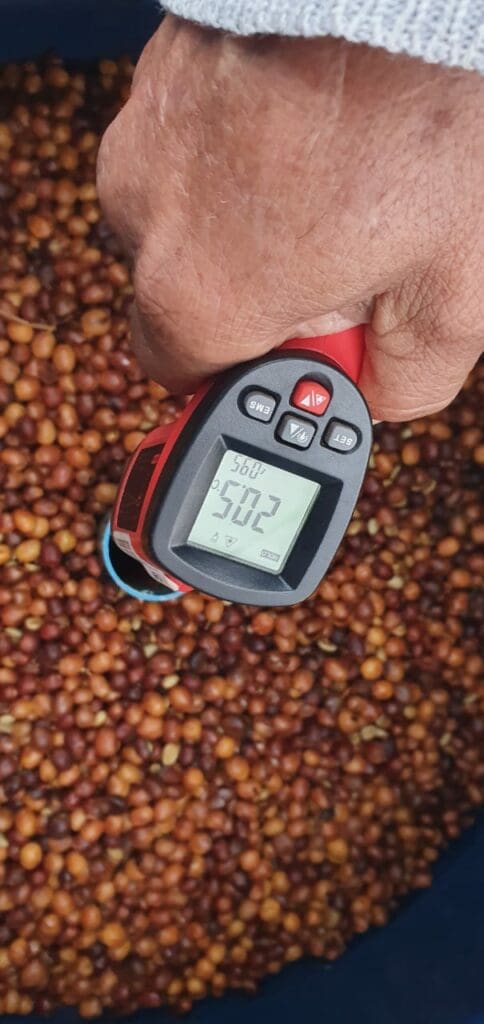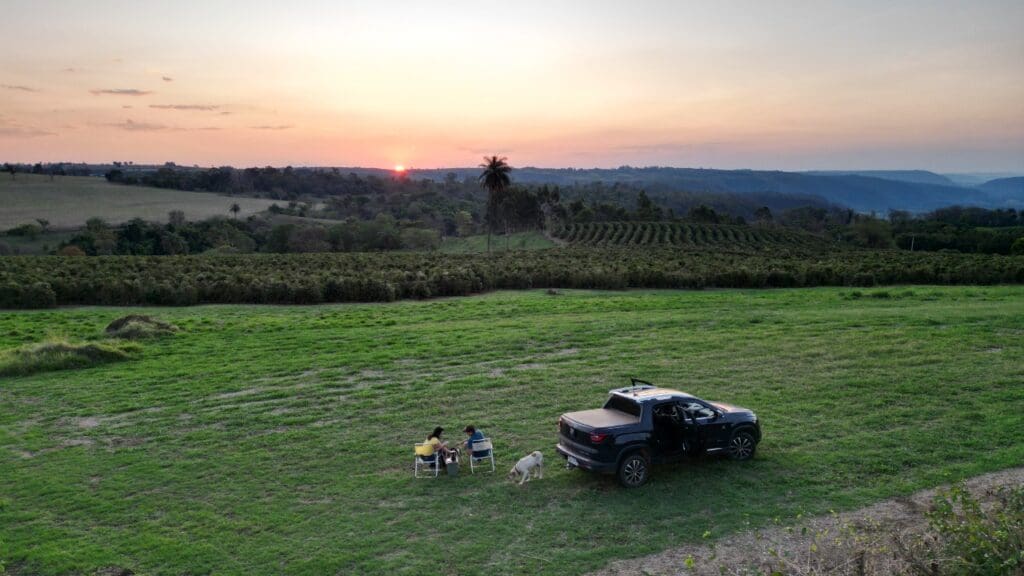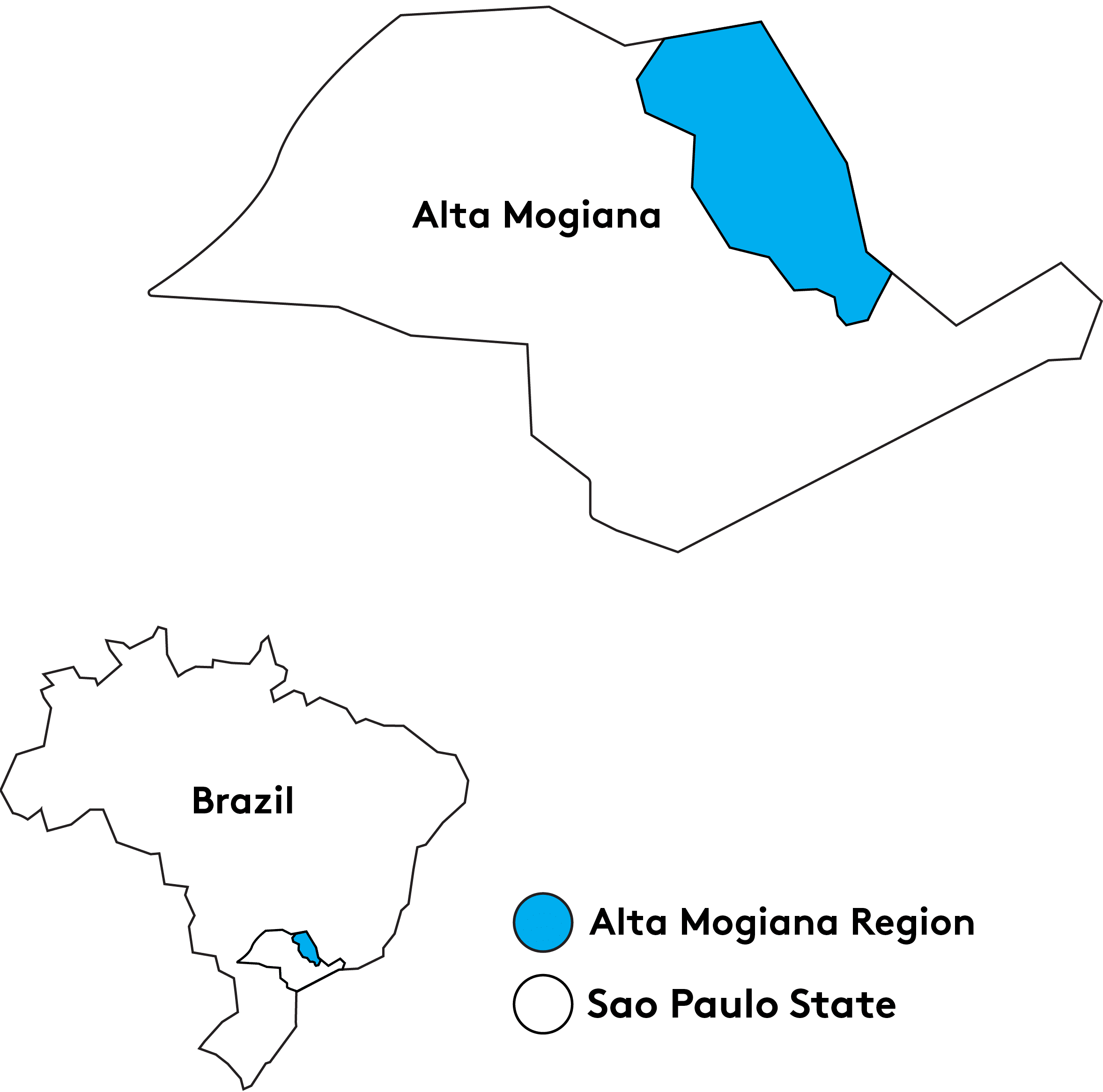José Domingos produces coffee at Fazenda Jatobá in the Alta Mogiana region of Brazil. He began his career as a coffee producer in 2010 after acquiring part of a farm, and he quickly discovered a passion for the trade. José saw the potential in his crops right away, and began studies and experimentation to achieve the highest possible quality. Throughout the years he’s tested several variations on post-harvest processing, including wild fermentation, induced fermentation, and a number of different drying techniques. Through his experiments, José has found himself increasingly curious about the seemingly endless possibilities of producing different aromas and flavors in his coffee, and his research continues through to this day.
Fazenda Jatobá sits 980 meters above sea level on a plateau between two valleys. 19 hectares of the farm are planted with several varieties, including Catucai, Topazio, Mundo Novo, Yellow Bourbon, Gesha, and Paraiso. The area surrounding the farm is paradise for local flora and fauna, with springs and waterfalls helping to support the local creatures in their natural habitat. Operations at the farm prioritize environmental stewardship along with quality, using microbiological means to control pests and disease in the crop rather than potentially harmful chemicals.
This lot of Yellow Catuai underwent Natural processing. Catuai was made by the Instituto Agronomico (IAC) of Sao Paulo State in Campinas, Brazil by crossing Mundo Novo and Caturra varieties. Catuai coffees are cultivated widely across Brazil, and are known for their high productivity potential.
